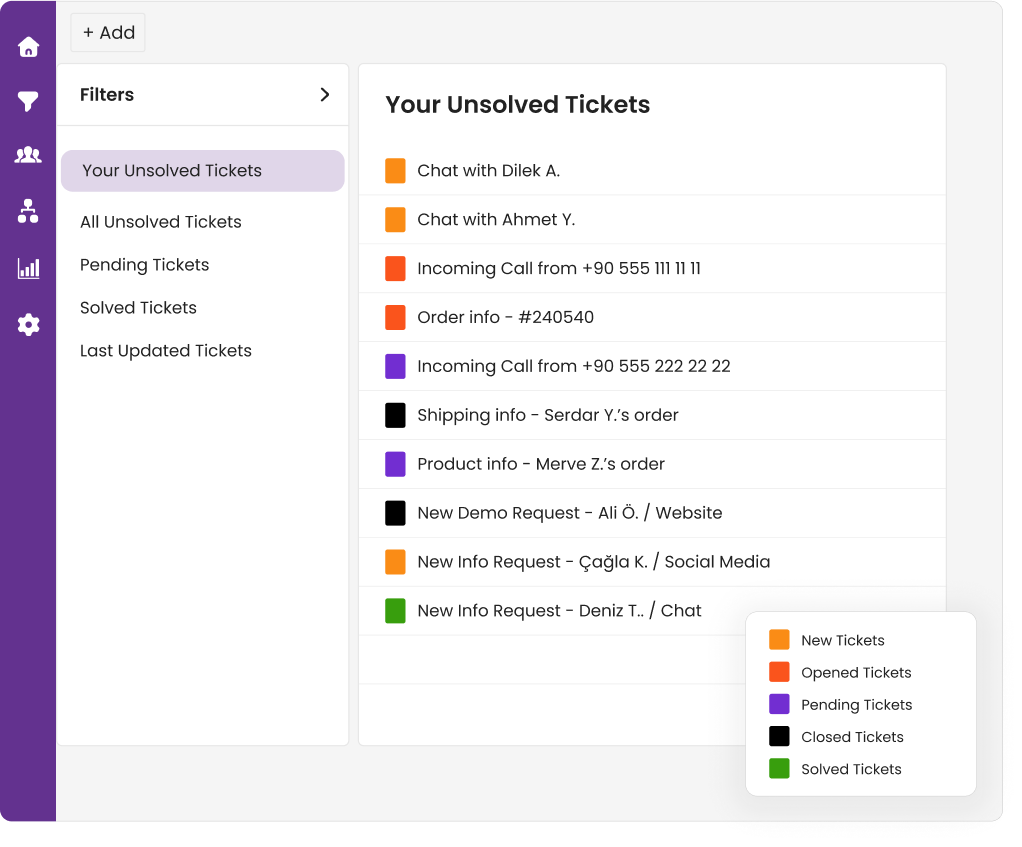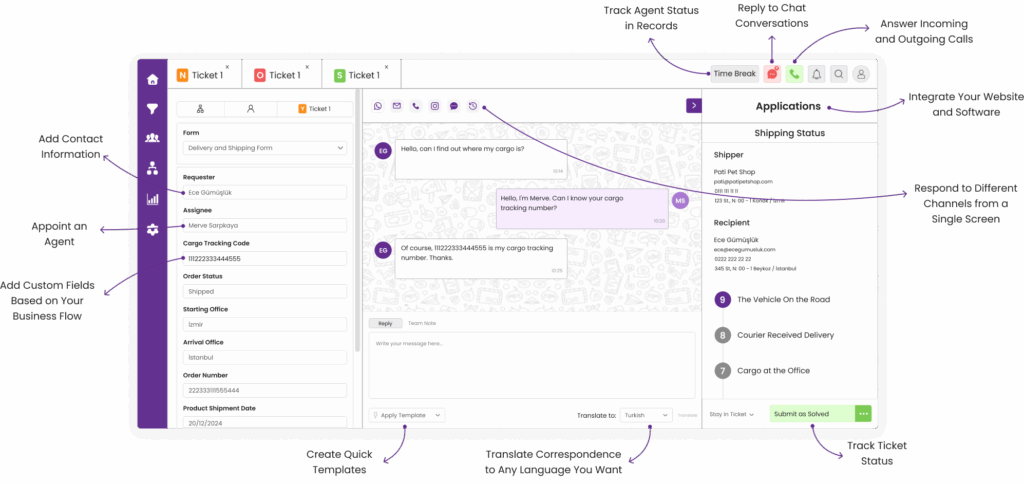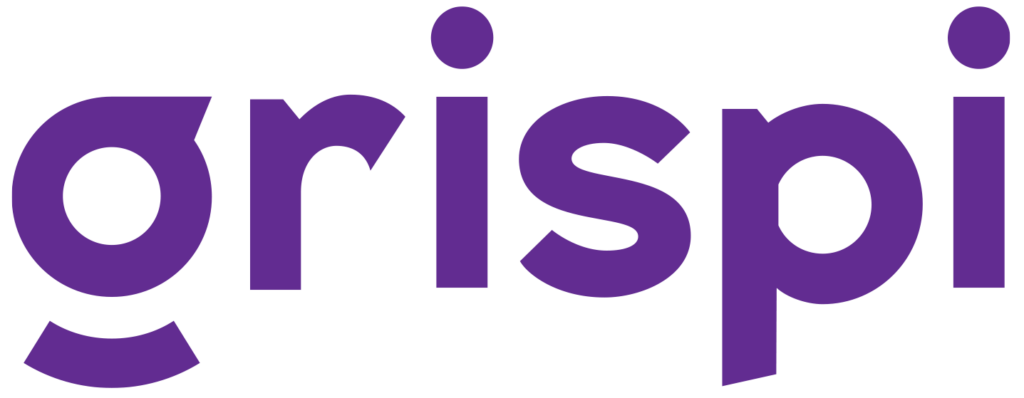What Is a Ticket System?
- April 1, 2025
In today’s world, customer experience has become one of the most critical factors that set brands apart. With the increasing diversity of communication channels, high volumes of incoming requests, and rising expectations for instant resolutions, businesses are now compelled to manage their support operations in a more systematic and efficient way. This is where ticket systems, also known as support request systems, come into play—turning customer inquiries into traceable, measurable, and organized workflows.
What Is a Ticket System?
A ticket system is one of the most widely used tools among businesses that aim to streamline, track, and improve the efficiency of their customer support processes. Each customer request is recorded as a “ticket” and remains in the system until it’s resolved. Instead of managing fragmented communications through email, phone calls, or social media, ticket systems consolidate all requests into a single platform—boosting team performance and enhancing customer satisfaction.

How Does a Ticket System Work?
Ticket systems typically operate as cloud-based platforms. When a customer submits a request, the system generates a unique ticket number for tracking. The request can be assigned to the appropriate department, tracked by status (new, open, pending, resolved, closed), and resolved by the relevant agent. Advanced systems also offer features such as internal notes, prioritization, and SLA tracking for customer service representatives.
Common Types of Tickets
To better respond to diverse needs, ticket systems categorize requests into different types. The most common ticket types include:
- Question: Requests for information.
- Problem: Reports of unexpected issues with a product or service.
- Incident: Urgent matters requiring immediate attention.
- Feedback: Suggestions or criticisms related to user experience.
- Request: Inquiries about new services or features.
Looking for HR ticketing systems? Check out our detailed guide here.

What Are the Benefits of a Ticket System?
- Traceability: Every ticket is numbered and can be tracked through the system.
- Efficiency: Enables multiple agents to work in an organized and collaborative manner.
- Reporting: Allows tracking who handled each ticket, when, and how quickly it was resolved.
- Transparency and Accountability: Customers can monitor the status of their requests at any time.
Where Are Ticket Systems Used?
- Tech and software companies
- E-commerce platforms
- Financial and insurance institutions
- Logistics and delivery firms
- Public sector and municipalities
- Educational institutions
Why Should You Use a Ticket System?
Whether you run a small startup or manage customer operations in a large enterprise, organizing and resolving customer requests quickly and accurately is no longer optional—it’s essential. Ticket systems not only improve your team’s efficiency but also bring structure and professionalism to customer communications.
They eliminate the chaos of managing inquiries across multiple channels and enable faster response times with clearer accountability. Additionally, they help leadership monitor performance metrics and improve decision-making. In short, for businesses committed to customer success, a robust ticket system is a must-have.
Free Ticketing System Platforms
1. Grispi

Grispi is a modern, user-friendly ticketing system that helps you manage all customer requests from a single dashboard. It includes powerful features like multi-channel integration (WhatsApp, email, social media, etc.), automatic ticket assignment, SLA tracking, internal notes, and detailed reporting.

With Grispi, your support agents can stay better organized, resolve issues faster, and allow managers to track performance in real time. You can also define automated actions based on ticket status—for example, set alerts for unresolved tickets after 24 hours, or route specific ticket types directly to the appropriate team.
Its advanced filtering and search functionality lets you find the right request in seconds, even among hundreds. And best of all, Grispi offers a 14-day free trial, allowing you to experience the full capabilities of the platform with no setup required. It’s an ideal solution for both small teams and large support departments.
2. Zoho Desk
Zoho Desk is an omnichannel support platform that comes with a 15-day free trial. It offers a simple interface and automation tools designed for small and medium-sized businesses.
Want to compare more Zoho Desk alternatives? Check out our top 10 list.
3. Freshdesk
Freshdesk provides a 21-day free trial and is known for its user-friendly interface. It supports email, phone, and social media integrations, and is suitable for basic support needs.
4. LiveAgent
LiveAgent offers multichannel support with a 14-day free trial. It includes live chat, email, and social media integrations, though some features may be restricted during the trial.
5. HubSpot Service Hub
HubSpot’s Service Hub integrates tightly with its CRM and is best suited for larger teams. It also includes a 14-day free trial.
Ticketing systems bring structure to your support processes and elevate the overall customer experience. Especially with platforms like Grispi, which combines ease of use with advanced analytics and automation, you can manage support requests more efficiently and professionally. And with a 14-day free trial, you can get started risk-free and see the benefits for yourself.
Contact us
Fill out the form for detailed information and demo account, let us call you.
